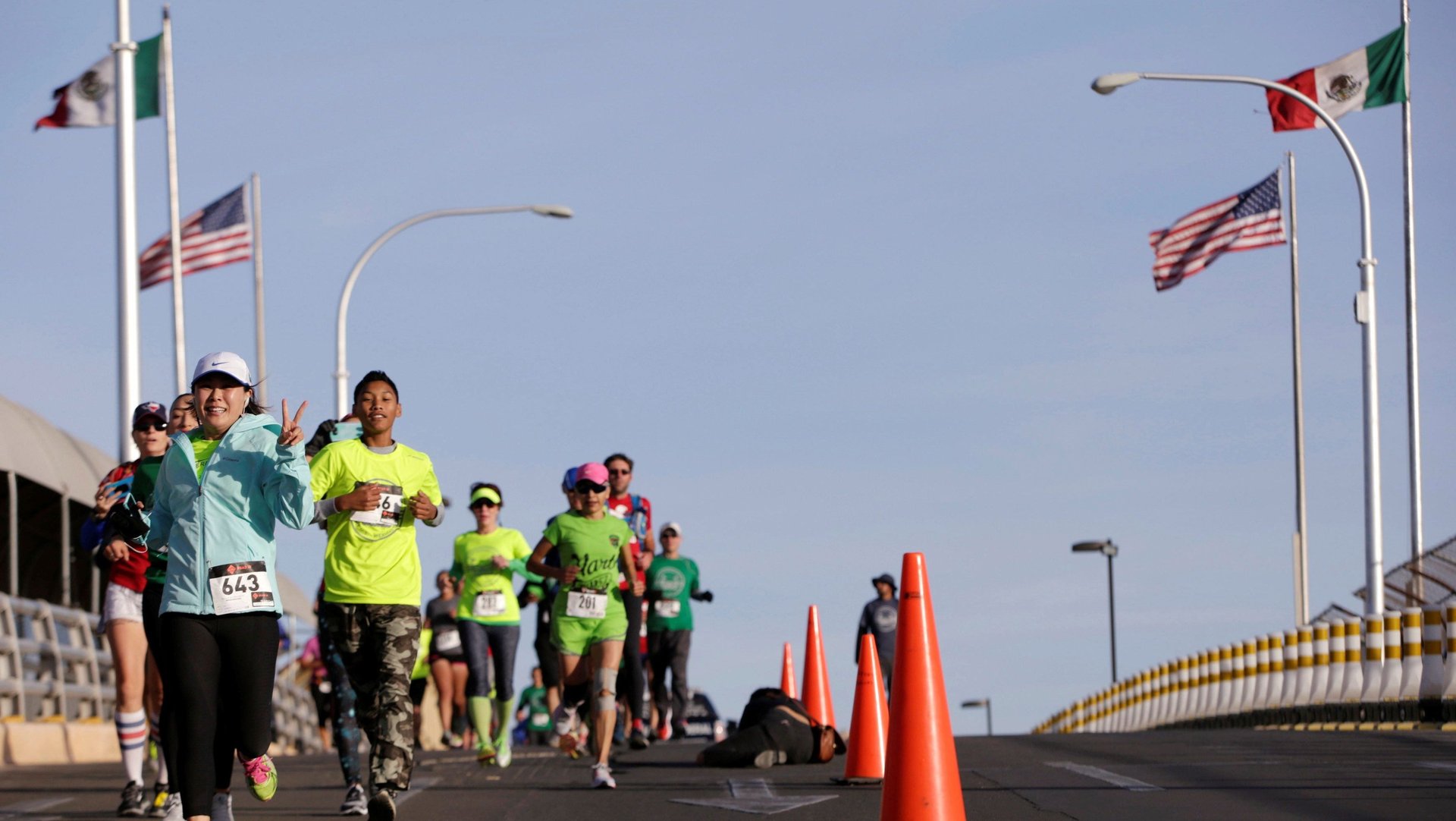Trump’s wall talk is hurting US businesses at the border
El Paso, Texas, a border town not usually in the national spotlight, got a big plug in Donald Trump’s State of the Union address.


El Paso, Texas, a border town not usually in the national spotlight, got a big plug in Donald Trump’s State of the Union address.
In his speech, the president hailed the city as one of the safest in the US—because, he said, a fence along the border put an end to dangerous criminal activity.
Locals’ response: Get your facts right.
Communities along the US-Mexico line have long battled the narrative of the border as a lawless, dangerous place—a staple among Washington figures trying to score with immigration hawks. Trump’s alarmist rhetoric about terrorists and violent gangs storming the US, and his insistence on building a wall to stop them, takes that vision to a new level.
“It’s made our life more difficult” says Jon Barela, chief executive of the Borderplex Alliance, which promotes investment in the El Paso region. “We are fighting against this PR machine, one which has taken a view that bad policies make good politics.”
Trump’s inaccurate statements are setting back efforts to attract new companies and jobs. In order to get executives to consider settling in El Paso, Barela and his team have to first disprove the president’s rhetoric. It’s a constant battle, he says.
Trump didn’t get it all wrong. El Paso is one of the safest US cities for its size. But it’s never been one of the most dangerous, as he claimed—nor is it safe now because of the fence. Violent crime peaked in 1993, more than 15 years before the the barrier was constructed, according to an El Paso Times analysis.
Even at the height of a bloody cartel turf war across the border in Ciudad Juárez in 2010, El Paso’s violent crime rate remained low. Locals, including Veronica Escobar, the El Paso Democrat who listened to the president’s address in person as a member of the House, were quick to point that out.
Fact-checking Trump is not just a matter of pride. Presidential rhetoric can have a real effect on local economies. Retail sales dipped in Texas’s biggest border cities during Trump’s first year in office, as his views put off shoppers from Mexico. In El Paso, stores and restaurants rely on Mexicans for about 10% to 15% of their business, according to the Dallas Federal Reserve.
Trump’s policies are affecting El Paso in other ways. Barela says uncertainty over the new trade deal between the US, Mexico, and Canada, USMCA, which still has to be ratified by Congress, has put several projects on hold.
The attention Trump is directing to the border is giving locals a chance to make their own pitch for El Paso. Shortly after Trump took office, Beto O’Rourke, the El Paso Democrat who challenged Ted Cruz for the US Senate last year, launched a Facebook campaign to counteract Trumpian narratives.
“Donald Trump doesn’t understand the border. Let’s show him what it looks like,” the he posted at the time. “Don’t be shy El Paso, this is our time to shine.”
El Pasoans will get another prime opportunity to set the record straight next week, when Trump is scheduled to hold a rally in their city.